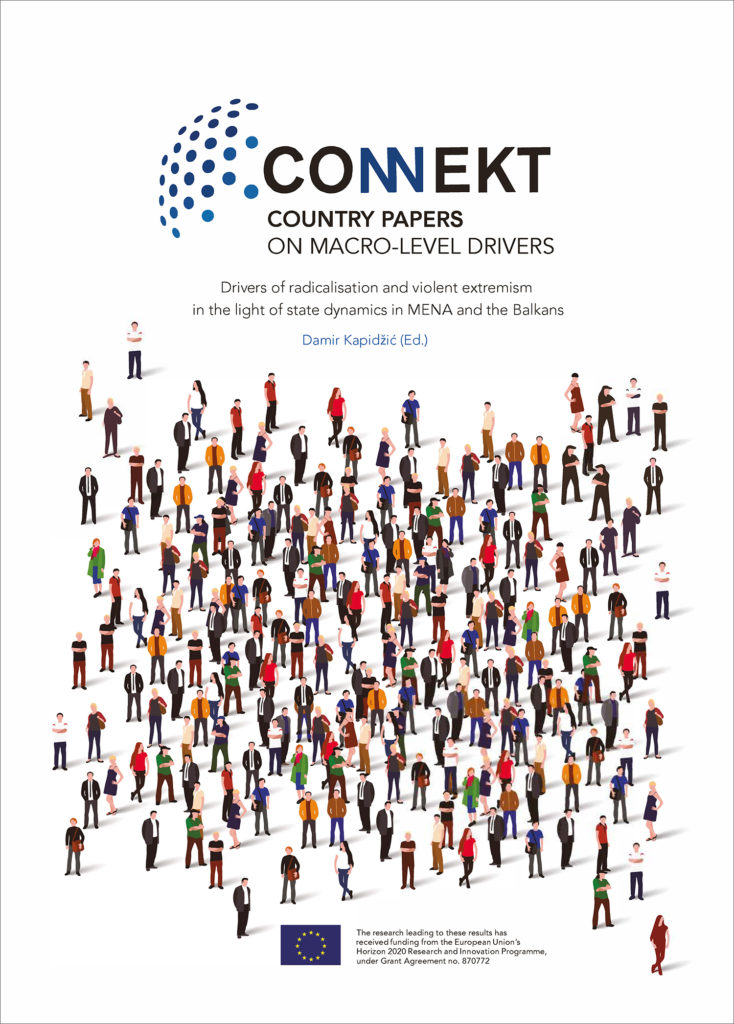
A just released publication of the Horizon 2020 research project CONNEKT examines the potential drivers of radicalisation and violent extremism in the light of state dynamics in Jordan, Tunisia, Morocco, Kosovo, North Macedonia, Bulgaria, and Bosnia and Herzegovina.
The paper looks into the seven potential drivers of radicalisation that CONNEKT is primarily tackling (territorial inequalities, economic deprivation, political ideas, cultural factors, religion, digital literacy, and transnational dynamics) in view of institutional norms, values, practices, strategic policy choices, and institutional responses analysed country per country.
Up to 24 contributors from the Balkans and the MENA countries have worked in this document. Its editor is Damir Kapidžić, Assistant Professor of Comparative Politics at the University of Sarajevo.
This publication on state institutions and strategies (macro-level) is the first empirical building block of the CONNEKT project, started in 2020, which will inform subsequent research on meso- (community) and micro- (individual) levels.




